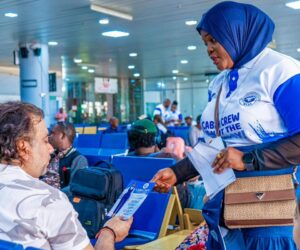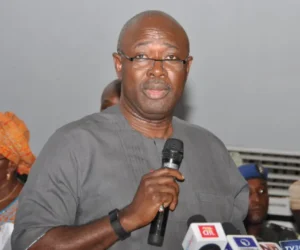1
The intersection between aviation and insurance in Nigeria is one fraught with complexity, risk, and urgent calls for reform.
At the recent CHINET AviaCargo Conference, held at Eko Hotel in Lagos during the three-day Akwaaba African Travel Market, industry leaders, insurers, regulators, and airline operators confronted one of the most pressing challenges in the sector: the risks and inadequacies of aviation and airport insurance in Nigeria.
High Risk, High Stakes
Nigeria operates one of Africa’s busiest aviation sectors, with an estimated 370 registered aircraft, of which 147 belong to the Nigerian Air Force and others to the Presidential Air Fleet and domestic airlines.
The country also has 13 scheduled commercial operators, 31 airports, and over 90 airstrips.
With aviation so integral to trade, logistics, and passenger mobility, the risks tied to accidents, infrastructure failures, and liability are immense.
Insurance, therefore, is not just a regulatory requirement but the safety net that underpins public confidence in aviation.
Yet, as panellists at the Lagos conference pointed out, Nigeria’s aviation insurance landscape remains plagued by high premiums, weak enforcement of compulsory policies, and underinsurance of critical infrastructure such as airports.
The Premium Problem
One of the most contentious issues is the high cost of insurance premiums in Nigeria compared with global benchmarks. Dr Usman Jankara Jimada, Deputy Commissioner for Insurance at the National Insurance Commission (NAICOM), explained that the disparity stems from Nigeria’s country risk profile. Factors such as weak aviation infrastructure, limited fleets, and a higher probability of crashes drive up insurance costs.
“In looking at the whole discussion around the rates of premium or what is charged for aviation insurance compared to Nigeria and other countries, let me say that, one, some of the criteria include the number of fleets you have, the aviation infrastructure that you have, the likelihood of a crash, and many other factors are considered.
So, what you will see happen is that even if you were to go to the London market with the same aircraft, if it is in Nigeria, you might be charged higher.
“If the aircraft were to be in London, you might be charged lower, for the obvious reason that infrastructure and all that are different. Our role really, you know, these are international dynamics that are brought on board, and it has to be discussed at a more global level, where we are looking at our aviation infrastructure, the competence, and all that we have to ensure, you know, there are no crashes. That discussion is not just something that you can do from the insurance angle.
“It is a national discussion that has to happen to then resolve the issues that resulted in that. Now, where I am interested is if, for any reason, you believe that the premium you’ll be charged is excessively high, and it’s not because of any of this, it is for some other reasons.”
Despite this, NAICOM insists it is committed to protecting operators from unfair treatment. The Commission has strengthened its Complaints Bureau into a directorate with powers to sanction insurers that delay or refuse claims.
Passengers and Luggage: The Neglected Stakeholders
For travel agents and passengers, the biggest concern is the lack of adequate insurance coverage for injuries, death, or lost luggage. Though NAICOM has mandated a minimum payout of $100,000 per passenger in the event of an air crash – up from the meagre $10,000–$20,000 of the past – many argue this is insufficient.
Chief Babajide Olatunde-Agbeja, CEO of Boff & Company Insurance Brokers, reminded the audience that families of victims can sue airlines and insurers for higher compensation.
However, this process is often lengthy and costly, leaving many victims uncompensated.
“Remember, the issue of insurance is the insured, which is you, and the insurance company. The insurance company was set up to provide cover for all forms of assets, personnel, and liability. These policies are available. It is up to you to request to buy them.
“And I remember 20 years ago, when there was a crash in Nigeria, and passengers were being offered $10,000–$20,000 compensation. NAICOM came up with a directive that all passengers must be insured.
“The Commission said minimum payout must be $100,000. Minimum. Remember, you cannot value life. But, they jacked it up so high, all insurances in Nigeria today cover all passengers to a minimum of $100,000. Now, if you have the MD of a FinTech at 23, with one wife and one two-year-old child, who died in that accident, you have the right to go to court, sue the airline and the insurance company, and ask for millions of dollars. Because that child must go to school, and that wife must be looked after. So $100,000 would not even cover that. So those provisions are there.”
Airports: The Missing Link in Insurance
While airlines and passengers dominate insurance debates, aviation veterans warn that airports themselves remain dangerously underinsured.
Group Captain John Ojikutu (rtd.), former Commandant of Murtala Muhammed International Airport, Lagos, lamented that the Nigerian Civil Aviation Regulation once stipulated insurance values for airports but recent revisions omitted them.
“We cannot insure only aircraft and cargo while ignoring airports, which provide the very services these planes rely on,” Ojikutu argued.
Captain Edward Boyo, Chairman of Overland Airways, was more scathing: “Mr Regulator, you have to ensure that all airports in Nigeria take up insurance. Because a lot of jet aircraft are destroyed by airports’ inefficiencies and infrastructure. A lot of the accidents that happen at the airports are the direct responsibility of the airports. Because airports have traditionally been owned by governments, you find the muscle of government oppressing the people.
“So I am surprised that Mr Regulator is sitting down there. We’re talking about airline insurance, passenger insurance, luggage insurance. What are you doing about the principal causative factor of accidents around the airport? The inadequacy of their wildlife control, the inadequacy of their de-rubberisation, the inadequacy of their runway and activity area hygiene, and so many other things.
“They are not insured. It’s like I’m driving a car on the road, I have insurance, and you are allowed to drive a car on the road without insurance. I think, Mr Regulator, you need to take this back to your agency.”
In response, the CEO of Boff & Company Insurance Brokers, Chief Babajide Olatunde-Agbeja, said:
“For the insurance of the airports, Boff & Co, my company, from 2006 to 2009, insured all the airports in Nigeria.
“Then there were 22 through the Federal Ministry of Aviation. I don’t know whether it’s still being done. But what we did then was to insure, because we had the ears of the minister, we sold the idea to the minister, and he gave a directive to FAAN to ensure that these airports are insured.
“So what I’m saying is, it’s offer and acceptance. The insurance company is not going to come out and say, hey guys, anytime there’s an issue, there’s a claim, we will pay. No. You must pay a premium first. You must come up to say, I want to insure my airports. There are so many private airports now, all the state airports, are they insured? We’re there marketing them, but they don’t believe in insurance. If anything happens, they own it.
“You can’t blame the insurance industry. We’re here, the policies are available. Anything of value is insurable under the sun. Anything that you can put monetary value on is insurable. So it’s up to you to request these insurances.”
Synergy as the Way Forward
For Mrs Bimbo Onakomaiya, President of the Professional Insurance Ladies Association, the solution lies in synergy between regulators and industries.
She emphasised that aviation cannot thrive without a strong insurance backbone, while insurance cannot be effective without aviation.
“There is no way in which the aviation industry will grow in leaps and bounds without the insurance industry supporting it,” she said.
“NAICOM must work hand-in-glove with the NCAA to enforce compulsory insurance, while insurers must innovate to restore business confidence.”
This synergy, panellists argued, must also extend to emerging technologies such as drones, which are already reshaping Nigeria’s aviation landscape.
Regulatory Shifts and Future Outlook
The recently passed Nigerian Insurance Reform Act (NIIRA) 2025 gives NAICOM greater enforcement powers over compulsory insurance, including in aviation. This means stricter compliance may soon become the norm. However, as Captain Boyo and others stressed, without government commitment to insuring airports and investing in safety-critical infrastructure, reforms will fall short.
Globally, aviation insurance remains a high-risk, high-cost market. According to the International Air Transport Association (IATA), Africa accounts for a disproportionate number of aviation accidents despite handling less than 3 per cent of global air traffic. Nigeria’s safety record, though improving, still lags behind peers like Ethiopia and South Africa.
The Bottom Line
The Lagos panel made one thing clear: Nigeria’s aviation industry cannot achieve global competitiveness without robust, transparent, and compulsory insurance covering airlines, passengers, luggage, and airports alike. Until then, operators will continue to pay high premiums abroad, airports will remain exposed, and passengers will bear the brunt of systemic failures.








